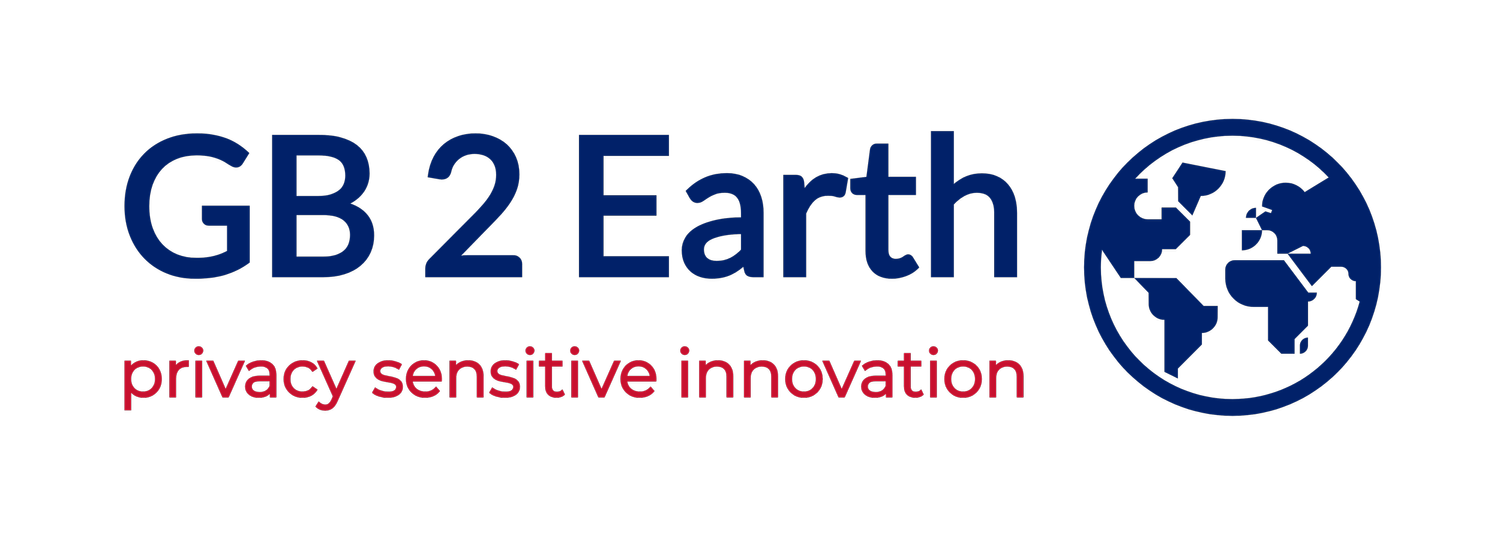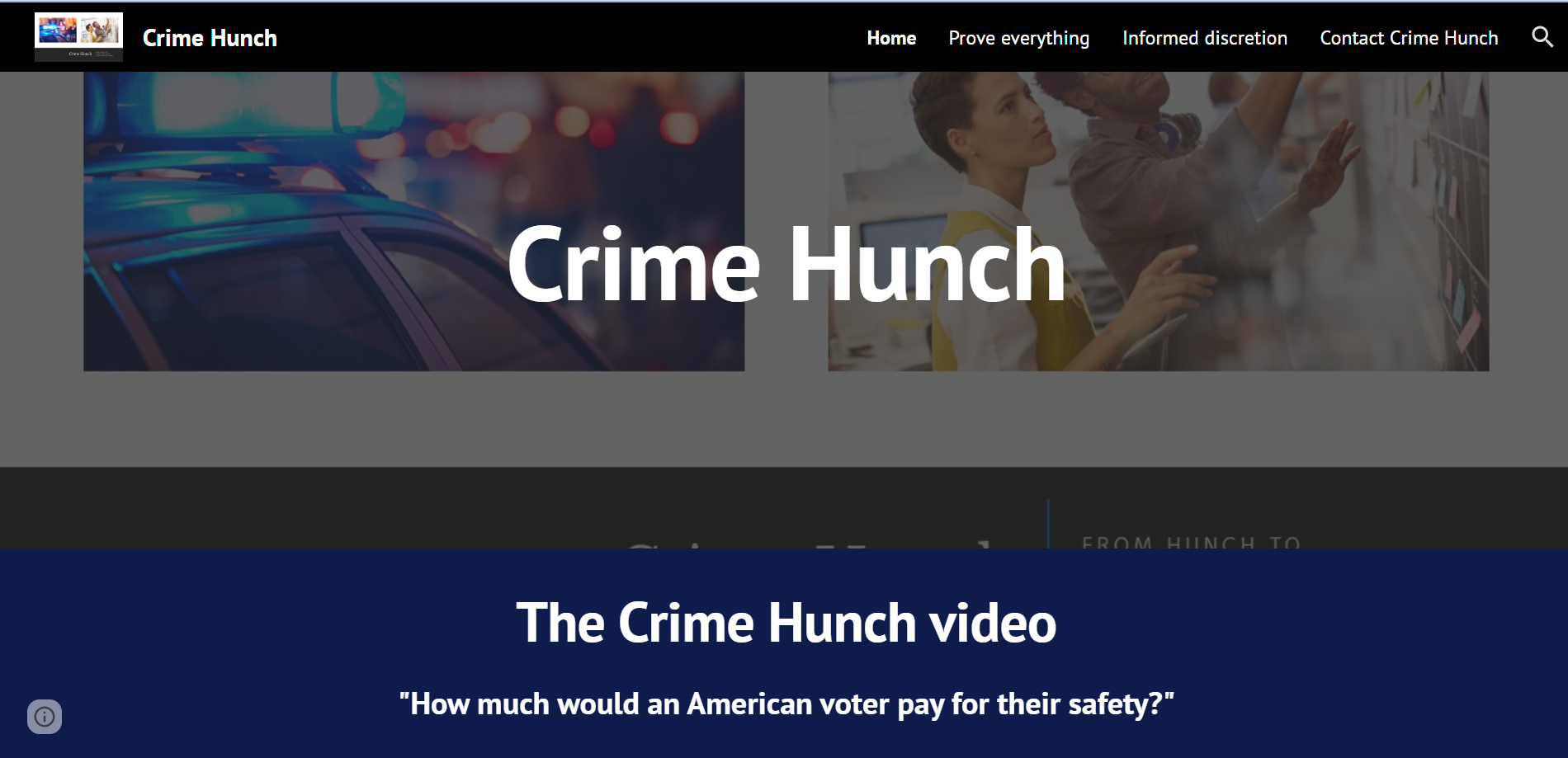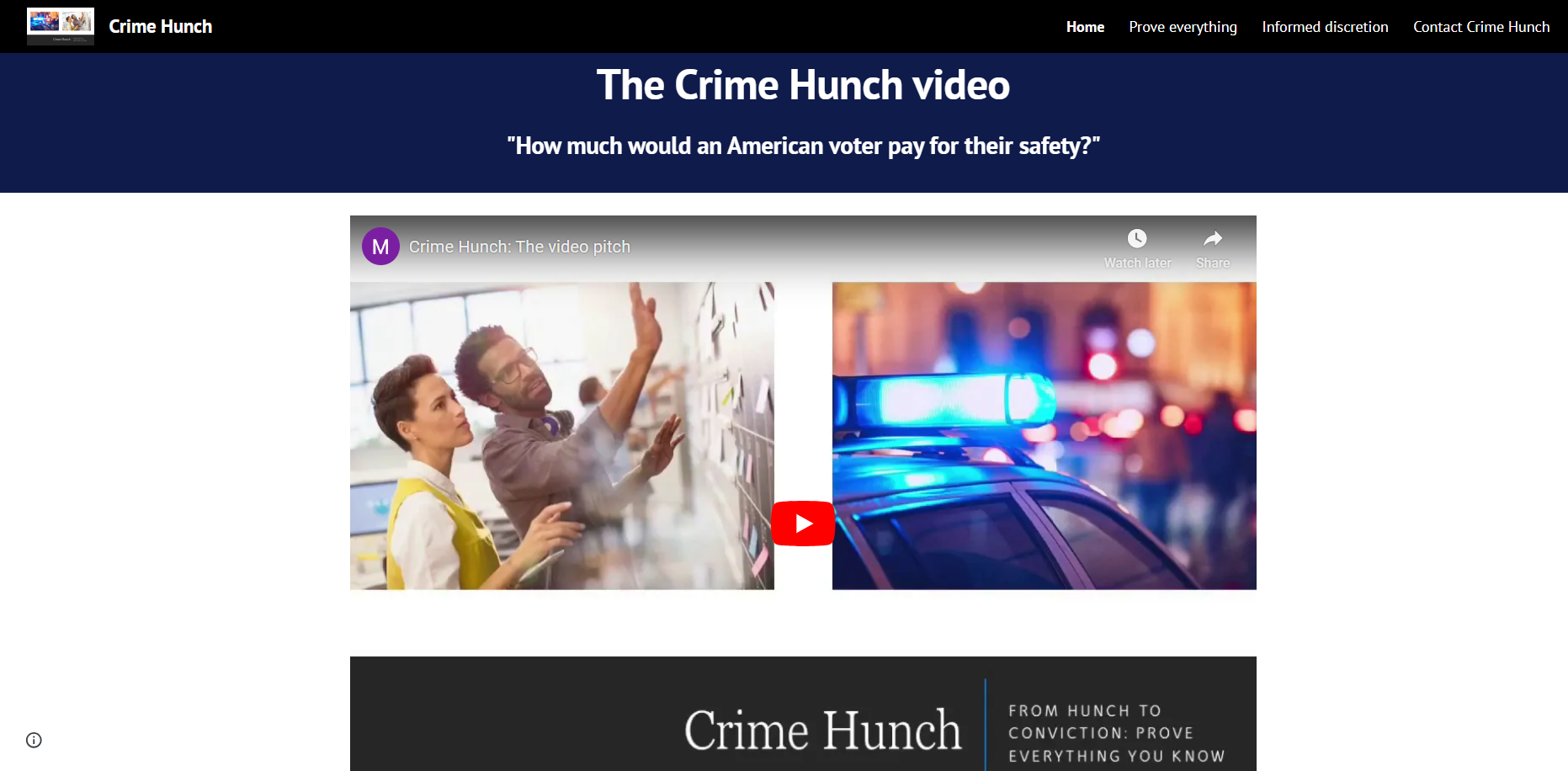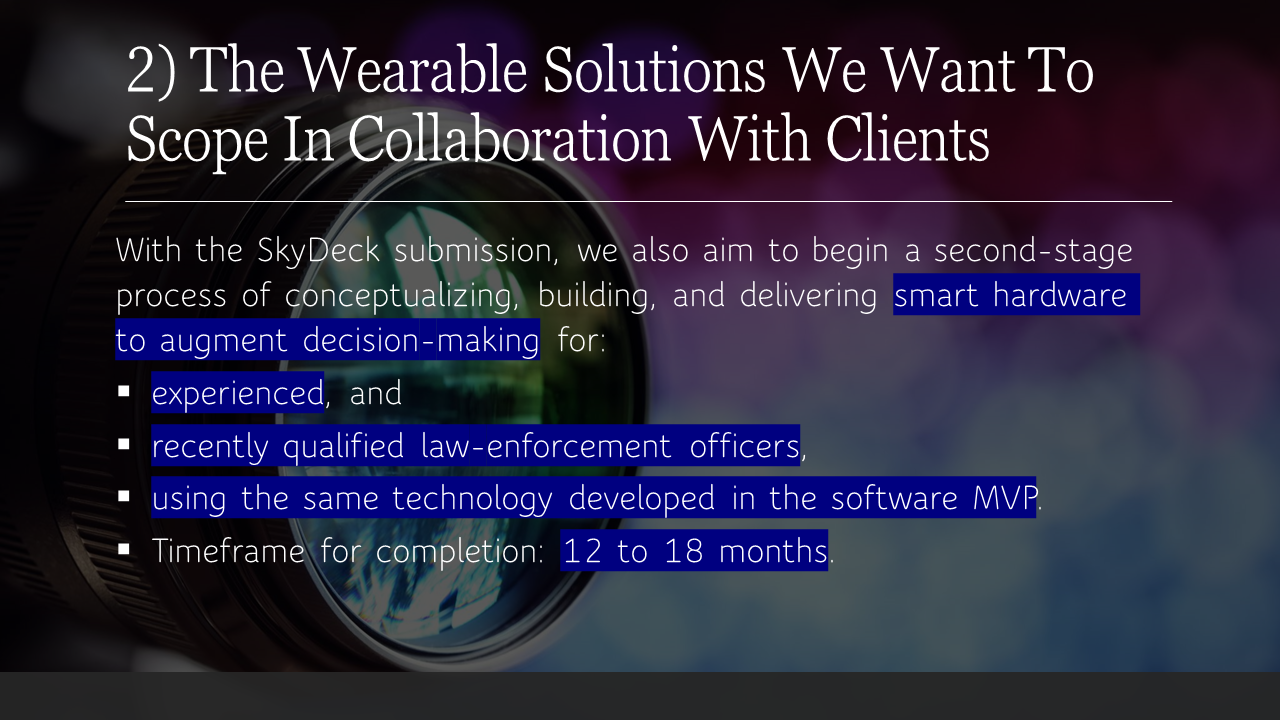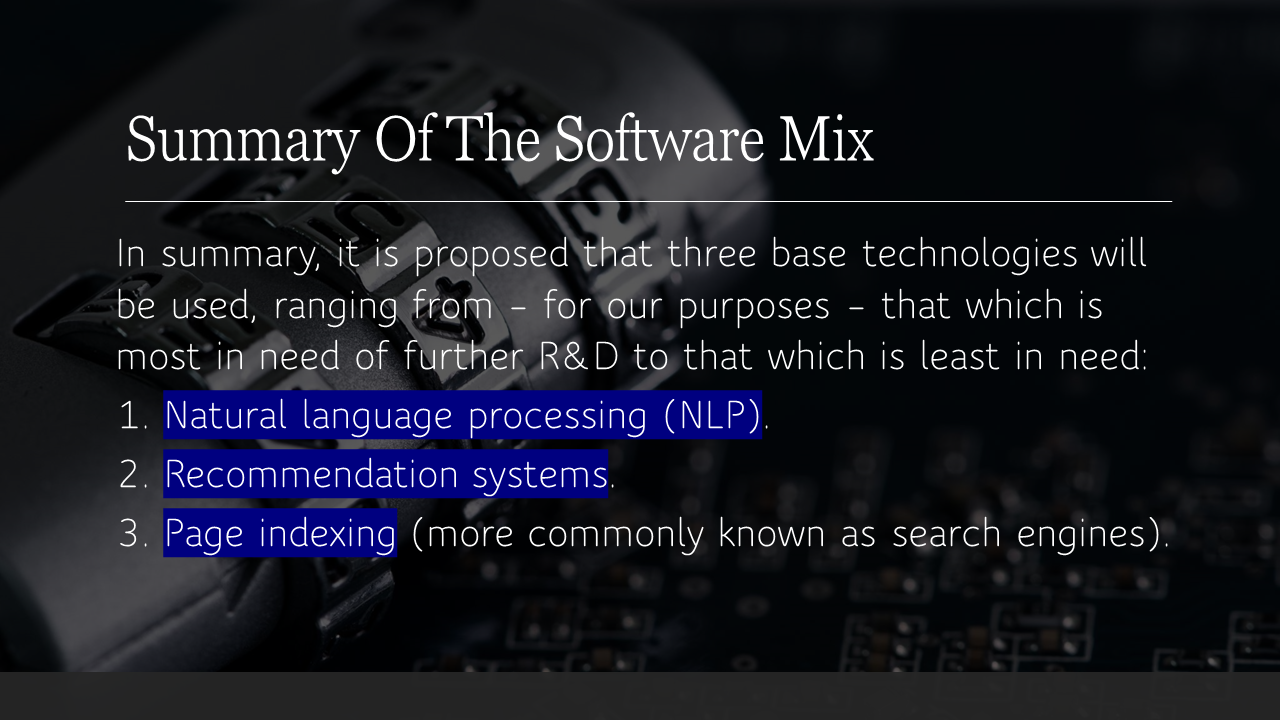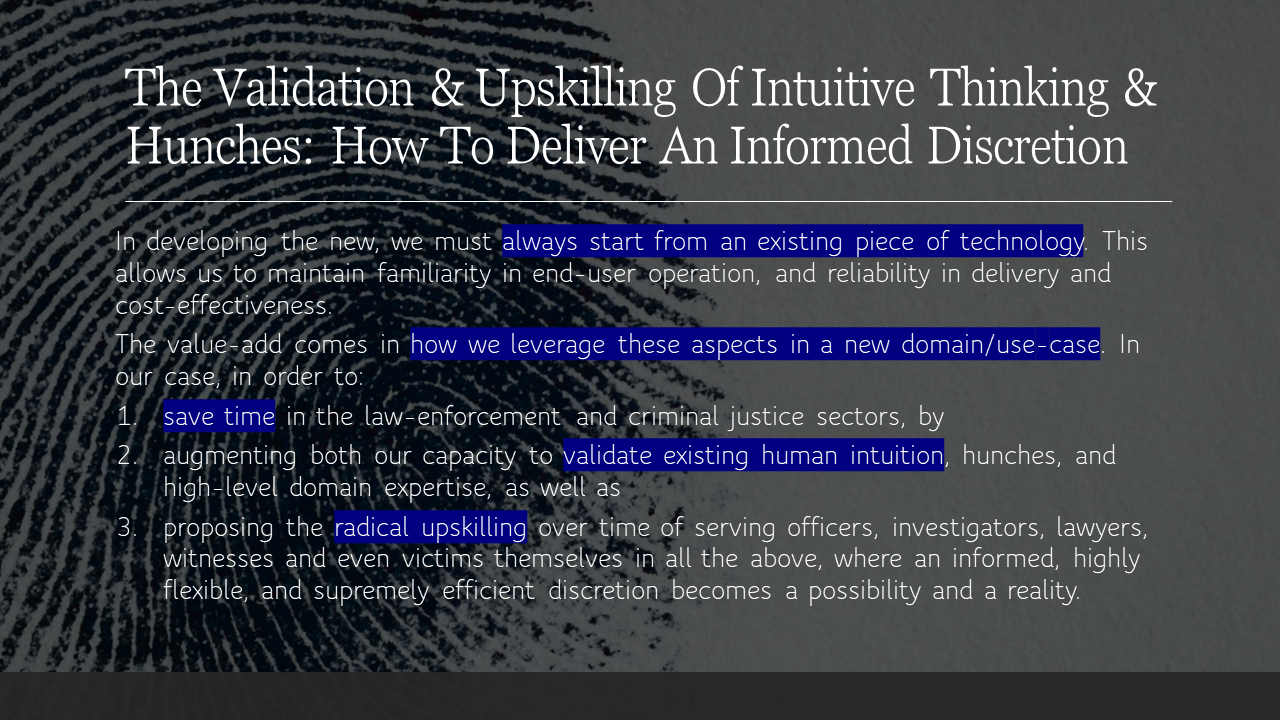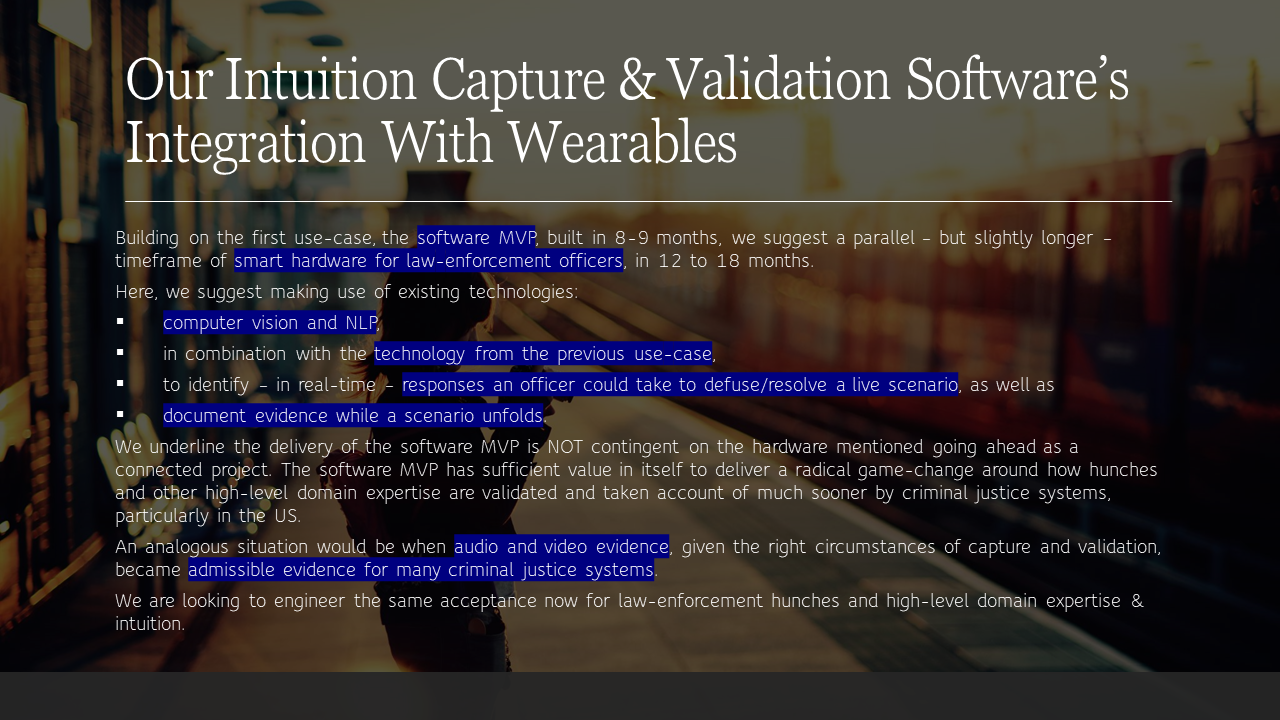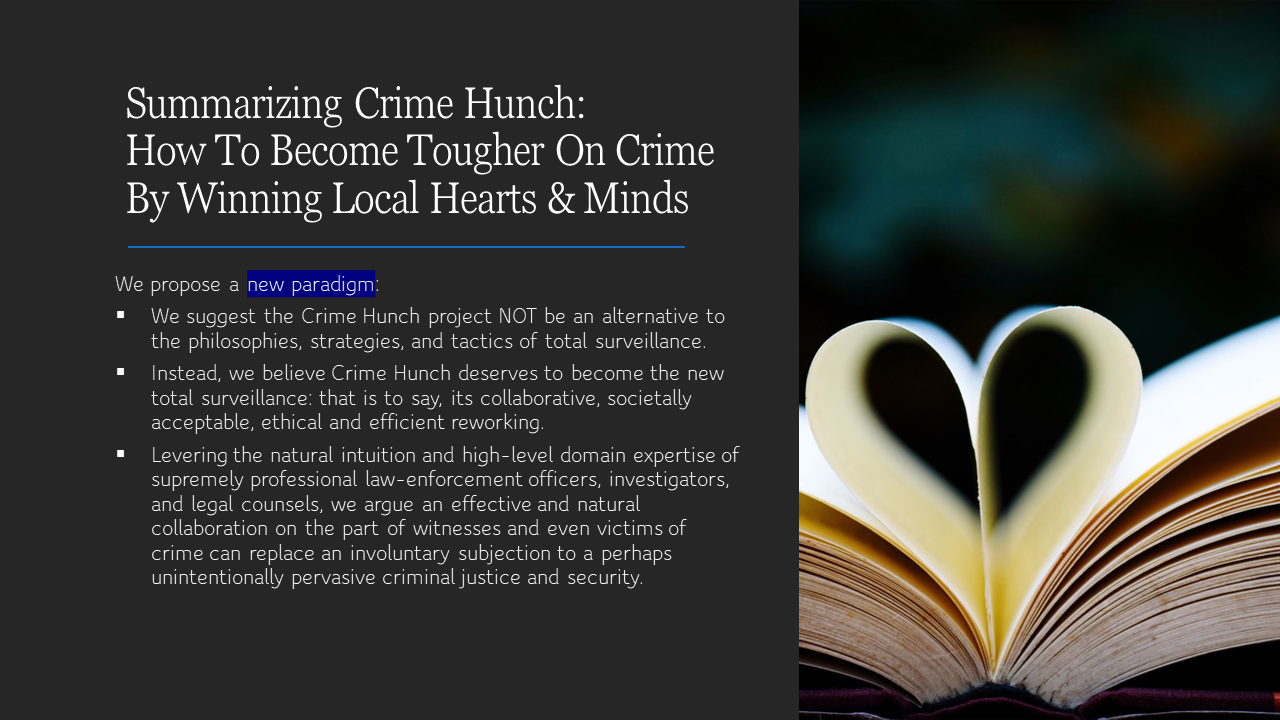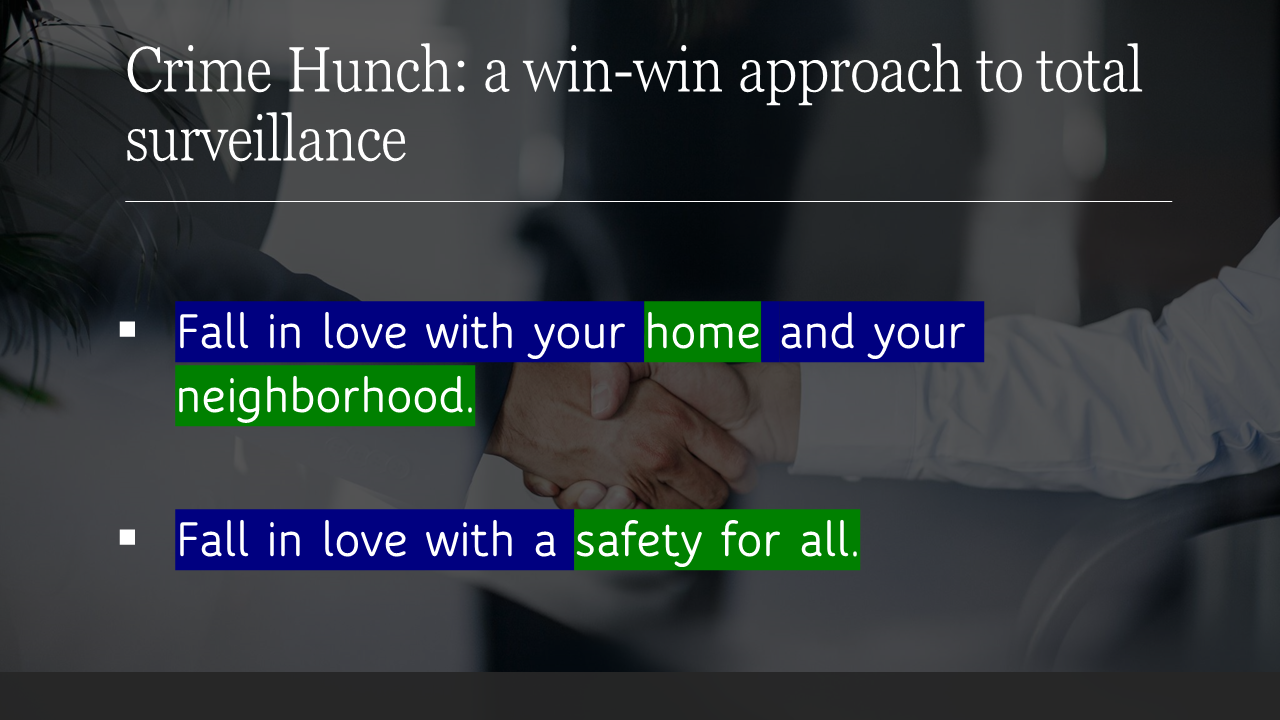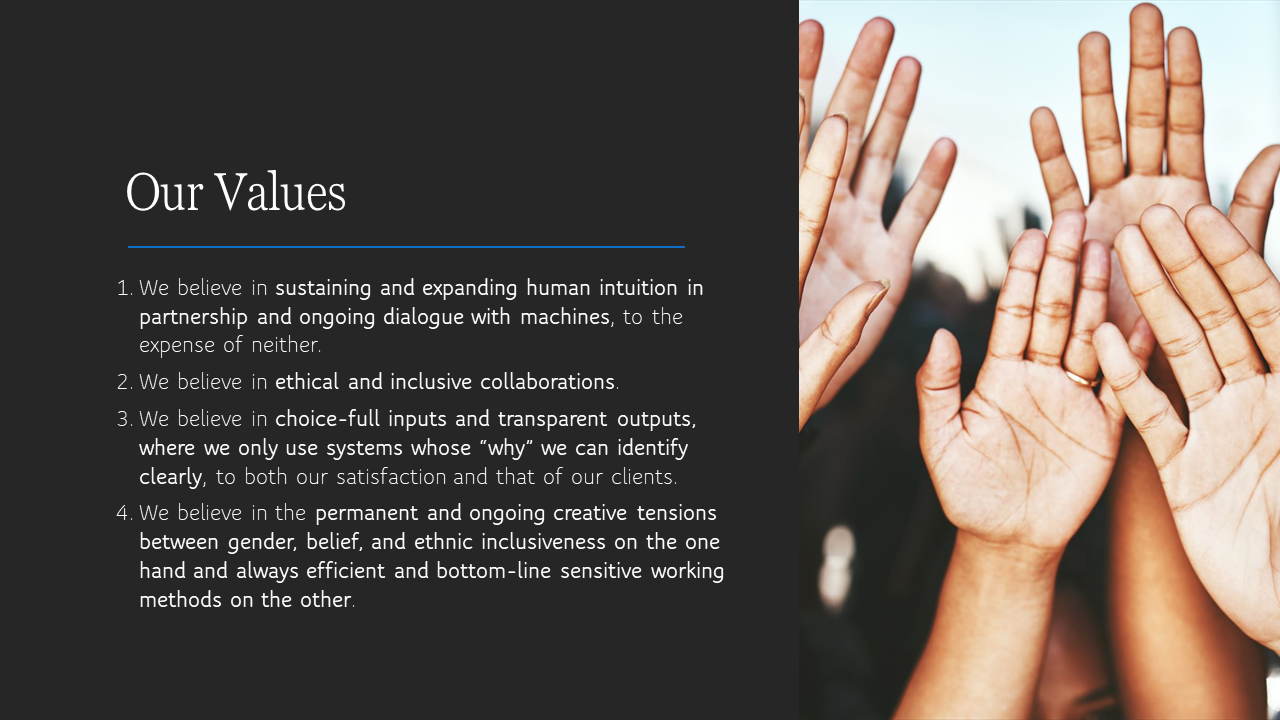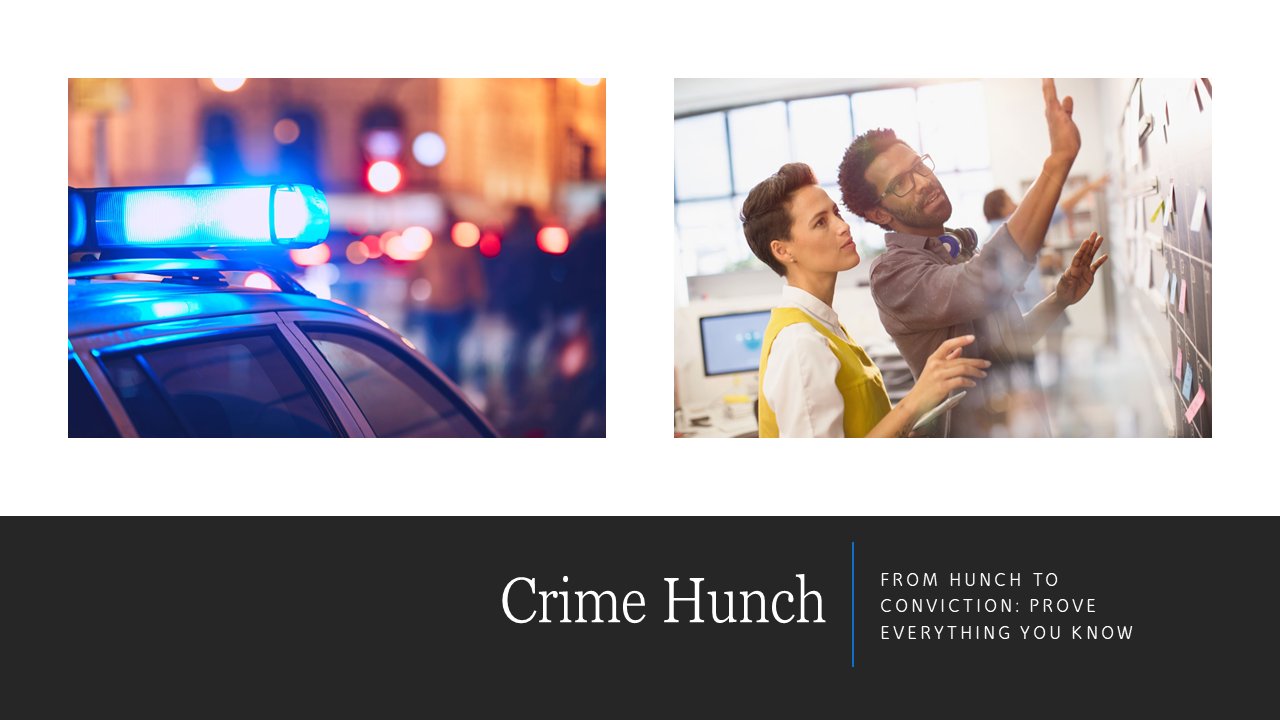The “Crime Hunch (i)” concept originally published and hosted from 2020 onwards on my own Google Sites account
“Crime Hunch (i)”
From hunch to conviction: Prove everything you know
This first version of “Crime Hunch” was actually my second stab at submitting to the UCB SkyDeck accelerator programme during the year of 2020.
The first version was called “i’ve pics”, and details of the content submitted and of the supporting online whitepaper can be found here on GB 2 Earth.
This second submission included two slide-decks, a very brief video as requested by the accelerator, an additional short-lived podcast series, and an overview of why the three people, including myself, were appropriate candidates for the programme being submitted to.
On this page you can find the content of the Google Sites’ webpage; the lean canvas slide-deck; the submission slide-deck itself; and an embed to the aforementioned video and one podcast episode themselves.
In reverse order, then … the video and podcast first.
The Berkeley SkyDeck summer 2020 submission slide-deck
The Berkeley SkyDeck summer 2020 lean canvas
The “Crime Hunch (i)” webspace
-
Crime Hunch
From hunch to conviction: Prove everything you know
Thinking hunches
Most security and law-enforcement professionals believe in the value of intuition. They may not call it intuition: they'll definitely be happy with the term "hunches".
Are you one of these professionals?
If you are, you'll know that — with experience — you not only take a position via your intuition, you also begin to take operational decisions.
Once you have the nous, it becomes your house.
But what about before you upskilled? What about when a new colleague, starting out? What about when you needed that nous, and the situation in front of you just overwhelmed a bit?
And if you don't remember, try listening to this: it's a true story, recently witnessed in Liverpool UK.
What Crime Hunch is about
Crime Hunch is about such moments - and far more.
In the slide-deck below, we give a glimpse of three areas of modern crime:
traditional crime (including national security crime);
legal crime (or societal harm, where crimes are legal but nevertheless damaging; also called zemiology); and
neo-crime - crimes which cannot be predicted or prevented on the basis of previous or current experiences.
These are all areas we sustain could be revolutionized by systems we propose be created to:
capture and
validate
intuitive thinking (high-level domain expertise, or efficient "thinking without thinking")
in operational and strategic crime and security contexts.
Systems which will take us all — whether professionals in law-enforcement, investigators, legal counsels and lawyers, witnesses or even citizens as victims — from the first inklings of the hunch about criminality to the certainty of proper and final conviction.
-
How to deliver an inclusive and efficient criminal justice
Two anecdotes
Two anecdotes to illustrate the importance of strengthening the role of an informed discretion in the administration and application of criminal justice and US law-enforcement.
The first anecdote is from Italy,
while the second is from the revenue-enforcement experience on the Liverpool UK Merseyrail rail network.
Italy
Mil remembers from his Criminal Justice MA experience a story he read, told about the efficacy of the Italian Criminal Justice journey - at least in one respect.
Because the family is so important there, it is common for law-enforcement to contact them when one young member apparently begins to stray from the straight and narrow.
Such a process of going outwith the system and straight to the parents or grandparents means there is a greater possibility that the individual will see the wrong they are doing, and be encouraged via constructive familial pressures to step back from their initiation into crime.
In this sense, it could be argued a successful outcome is one which doesn't capture wrongdoing by the book, because it prevents it from becoming an habitual act.
Liverpool UK
Mil himself observed the following scenario on a commuter train operated under the banner of Merseyrail in Liverpool UK.
Body-cams had recently been introduced for revenue-enforcement officers - people whose job it is to ensure everyone buys a ticket.
One incident involved an officer telling a passenger they had to get off at the next station, and pay a fine. There was no alternative to this action, either: the body-cam had recorded it all.
It was clear to Mil that while body-cams conceivably supported consistency of enforcement actions, they made it highly unlikely that discretion of the kind described above in Italy could ever help to keep people out of the system, in order to potentially redeem them.
Crime Hunch, and delivering an informed discretion
One of Crime Hunch's main strategies is to deepen crime prevention so that communities across the US can become even tougher on real crime.
We know that many of us intuitively perceive crimes: unfortunately, there is little we can do at the moment to communicate such hunches, because what we see is hard to share and even harder to prove.
If we can deliver on the tech and systems we propose, what we are now calling "informed discretion" — on all sides — will open the door to more effective, accurate, and efficient law-enforcement, as "what you know but cannot currently prove" suddenly becomes one more manageable piece of data.
With one exception in respect of the AI and Big Data systems currently in use: we argue that the very fragile and often vulnerable nature of intuitive, or "hunch-rich", thinking requires us to make its contributing the voluntary act of an empowered citizen, always.
